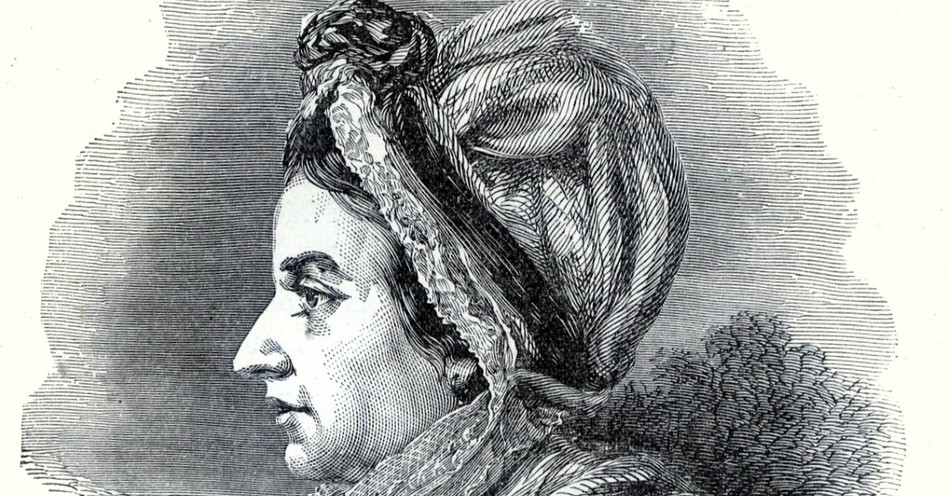A daughter, a wife, and a mother, Susanna Wesley never had a high public profile. Controversy defined many of her days. Trials were never far from her. And yet, her name is being passed down through history.
Remembered as the “mother of Methodism,” Susanna Wesley’s life is a testimony to God’s power to work mightily through surrendered, prayerful, and ordinary people.
Important Events in Susanna Wesley’s Life
Her father separated from the Church of England due to his spiritual conviction. The move severely affected his large family’s financial security and certainly shaped how Susanna understood a life surrendered to God. She was never under the impression that obedience meant ease.
Marrying Samuel Wesley at the age of 19 was her next life-altering choice. An intelligent, capricious, and stubborn man of God, Samuel Wesley became both an encouragement and testing for Susanna. He was rarely able to provide adequately for his family of 12. He was occasionally away from home due to marital disputes, temporary imprisonment, or vocational obligations. As a result, Susanna frequently fed, educated, and maintained her family independently.
Her natural craving for order and regular taking care of her children alone led to a systematic approach to faith and child-rearing. Her approach especially impacted her son, John. When studying at Oxford, John, his brother Charles, and several other men formed a group that fasted, prayed, and served the underprivileged. They functioned so orderly that other students mockingly called them “methodists.” The name stuck, and Susanna Wesley became the mother of Methodism.
Although Susanna gave birth to 19 children, only 10 grew past infancy. One child was smothered by a maid sleeping heavily due to unruly congregants upset with Samuel over his political choices. The death of children affected a mother’s heart in the 1700s in the same way it does today. Those deaths would have left deep wounds. But while Susanna certainly would have lamented the loss of so many children, she never lost faith in the God who loved her and gave up His life for her.
Other triumphs and tragedies affected Susanna’s life. One particular tragedy was a fire that consumed her household, leaving her family homeless, clothesless, and penniless. It was the second fire to afflict their house and had far-reaching consequences. Susanna later wrote to her brother, “Mr. Wesley rebuilt his house in less than a year; but nearly thirteen years are elapsed since it was burned, yet it is not half furnished, nor his wife and children half clothed to this day.”
Her children lived apart from each other while their home was being rebuilt. Susanna worried that this would cause their morals to decline, and she set aside time each evening to meet with one child, giving them all individual attention.
One of her many triumphs was born out of a trial. Samuel had to be away from home for a while as he attended the Convocation of the Church of England in London and paid a curate to perform his duties. The man’s sermons were so dry and uninspiring that Samuel’s dwindling congregation declined further. Susanna began holding evening services in her home with her children and servants to give her children solid biblical teaching. Hearing of these services, many townspeople not attending regular morning services began showing up to hear Susanna’s engaging teachings. The meetings eventually boasted over 200 attendees, compared to the 20-25 people attending the curate’s services. While these meetings caused tension, they ultimately gave a crumbling church greater unity and increased spiritual fervor.
While Susanna lived faithfully for Christ in all her endeavors, she did not fully realize her freedom in Christ until her later years. In August 1739, while receiving communion, Susanna was struck by the words, “the blood of our Lord Jesus Christ, which was given for thee.” At that moment, she understood the fullness of Christ’s work on the cross, that she was completely forgiven all her sins and had an absolute assurance of salvation through Him. This newfound assurance led her to affiliate with the Methodist movement. When she passed in 1742, all her children sang a psalm of praise to God at her request.
What Did Susanna Wesley’s Other Children Do?
You are likely familiar with the legacy of two of Susanna’s children, but we cannot forget that she had eight other children who lived to make their own legacies. They all continued in their parents’ faith, even if they didn’t achieve the fame of their two famous brothers.
The oldest, Samuel, was an ordained Anglican minister who devoted most of his life to teaching. He first taught at Westminster School and then became headmaster of Blundell’s School.
Unfortunately for many of the girls, bad marriages stymied their opportunities for success. Emilia, the eldest girl, opened a school in Gainsborough only to see her husband bankrupt it. Their marriage did not last. In later years, Emilia became very involved in the Methodist movement.
Susanna, also known as Sukey, entered into marriage quickly after learning that her uncle would not provide financial support. Her husband drank heavily and was often physically abusive. After a fire burnt down their home, she left him to live in London.
Mary, the third daughter, married relatively well. Sadly, before their first year of marriage ended, Mary died while giving birth to a stillborn baby. Her life story is imagined in the historical fiction novel Mary Queen of Bees.
Mehetabel, known as Hetty to her family, was a wildly intelligent lady who fell in love with a lawyer while working as a companion to a governess. They decided to elope in London, but upon arrival, she was informed that he never intended to marry her. Pregnant and dejected, Hetty returned to her disapproving parents. Her father never forgave her and forced her into marriage with a plumber. Like Sukey’s husband, the plumber was an abusive alcoholic. With financial help from Hetty’s uncle, he started a business in London, where they lived until Hetty passed in 1750.
Anne’s married life was comparatively stable. She married a wealthy land surveyor, who became a very active Methodist after recovering from an alcoholic period stemming from spending too much time with Hetty’s husband.
Martha married her father’s curate. Unbeknownst to Martha, he had attempted to woo her younger sister, Kezia, while the two were engaged. Years into marriage, it surfaced that he had been involved in multiple affairs. After their separation, Martha involved herself in the Methodist movement.
Kezia, the youngest daughter, vowed to remain single all her life. She never married, supporting herself by living with her sisters and working as a teacher. She also got involved in John and Charles’ work.
Can We Learn Any Important Lessons from Susanna Wesley’s Life?
In Susanna Wesley, we see a woman firmly rooted in Christ who surrendered her life and work entirely to God’s gentle hands.
We also see a woman who suffered much. In the story of her life, the prosperity gospel dies. The prosperity gospel promises the good life in return for Sunday morning attendance, leaving earnest Christians feeling as if they have been lied to by God when they encounter difficulty. But God’s Word never promises freedom from hardship at the point of salvation. It assures the opposite. God is a good Father who will see His children through the most difficult parts of life, using trials to form us into Christ-like individuals who can “laugh without fear of the future” (Proverbs 31:25) as we come to know and love the Giver of all things good above His gifts.
Still, as Susanna Wesley’s life exhibits, the gospel does not promise a life of ease. If we, like Susanna, are willing to live faithfully in our ordinary, sometimes mundane, and sometimes difficult days, then we can be used for God’s glory.
For a deeper look at Susanna Wesley’s childhood and marriage, read this article by Diane Severance:
“When Susanna Annesley, the 25th child of Dr. Annesley, was born to his second wife there probably was not much discussion about her or her future. Little could the family dream that she would become the mother of John and Charles Wesley, the founders of worldwide Methodism. Susanna was an ‘old lady of 19’ (almost a late marriage in those days) when she became the wife of Samuel Wesley, an Anglican minister.
The Wesley family traced their lineage to the 10th century, but ancestry did little to help the problems of their forty-four year marriage. They suffered illness, disease, poverty, and the death of children. Fire twice destroyed their home. But through it all Susanna accepted the will of God and placed herself and her family in His hands.
Politically Samuel and Susanna were both Tories, but while Samuel accepted William of Orange as King William III, Susanna considered James II to be the true king. Once in 1701 Susanna refused to say “Amen” to Samuel’s prayer for King William. Tension ensued. Samuel left for London as a Convocation proctor for a year. He returned in 1702 when Queen Anne, whom they both acknowledged as the legitimate sovereign, came to the throne. So in a real sense, we might say that John was the child of their reconciliation.
Susanna bore between seventeen and nineteen children; ten survived. The frequent absences of her husband on church business left the management of the household in her hands. Through it all she remained a steadfast Christian who taught not only through the Scriptures, but through her own example of daily trust in God. She once wrote: We must know God experientially for unless the heart perceive and know Him to be the supreme good, her only happiness, unless the soul feel and acknowledge that she can have no repose, no peace, no joy, but in loving and being loved by Him.
The children were raised strictly. They were taught to cry softly, to eat what was put before them, and not to raise their voices or play noisily. Physical punishment was used, but confession of faults could avoid it. All but one of the children learned to read from the age of five, including the girls. (Susanna made it a rule for herself to spend an hour a day with each of the children over the period of a week.) After the fire of 1709 family discipline broke down, but Susanna managed to restore it later. She paid special attention to John, who was almost lost in the fire. He referred to himself as ‘a brand plucked from the burning fire,’ and his mother said that she ‘intended to be more particularly careful of the soul of this child that Thou hast so mercifully provided for, than ever I have been, that I may do my endeavors to instill into his mind the disciplines of Thy true religion and virtue.’
It is said that at the age of six or seven John thought he would never marry ‘because I could never find such a woman as my father had.’ After Samuel Wesley died in 1735, Susanna lived with her children, especially, in her last year, with John. She died on July 23, 1742 and was buried in London’s Bunhill Fields, where John Bunyan and Isaac Watts are also buried. Her sons won tens of thousands of souls to Christ. She would not have wished for more.”
(“Susanna Wesley: Christian Mother,” by Diane Severance, Ph.D., first appeared on Christianity.com on May 3, 2010)
Photo Credit: 1884 illustration via Wikimedia Commons.

This article is part of our People of Christianity catalog that features the stories, meaning, and significance of well-known people from the Bible and history. Here are some of the most popular articles for knowing important figures in Christianity:
How Did the Apostle Paul Die?
Who are the Nicolaitans in Revelation?
Who Was Deborah in the Bible?
Who Was Moses in the Bible?
King Solomon's Story in the Bible
Who Was Lot's Wife in the Bible?
Who Was Jezebel in the Bible?
Who Was the Prodigal Son?



